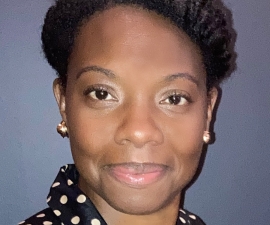

Research Bio
Tolani Britton uses quasi-experimental methods to explore the impact of policies on students’ transition from secondary school to higher education, as well as access and retention in higher education.
Prior to earning her doctorate at the Harvard Graduate School of Education, Professor Britton worked as a high school math teacher and college counselor in New York City public schools and as a policy analyst for the Organization for Economic Cooperation and Development (OECD) in Paris, France. Her scholastic credentials include a Master of Arts in Economics from Tufts University, a Master of Arts in French Cultural Studies from Columbia University, and a Bachelor of Arts in both Economics and French Literature from Tufts University.
Professor Britton received a 2023 - 2028 NSF CAREER award, a 2023 Association for Education Finance and Policy Early Career Award, an AERA Division L (Educational Policy and Politics) Early Career Award and a CIES Ernest D. Morell African Diaspora Emerging Scholar Award in 2022. She is a 2021 National Academy of Education/Spencer Postdoctoral Fellow. She also received a Russell Sage Foundation Pipeline Grant for Emerging Scholars in 2020 and was a 2016 National Academy of Education/Spencer Dissertation Fellow.
Recent publications:
Reimagining the machine learning life cycle to improve educational outcomes of students.
Research Expertise and Interest
social research methods, higher education policy, economics of higher education
Featured in the Media
Studies repeatedly show that students of color in K-12 schools are suspended more often and more harshly than white students. Yet drawing from ten years of New York City public school data from grades 4 to 8, a new working paper coauthored by UC Berkeley professor Tolani Britton found that Black, Latinx, and Asian American students were less likely to face such exclusionary discipline when their teachers matched their racial or ethnic background.
A new study links increases in hate crimes to a rise in students enrolling at historically Black colleges and universities.
A new study authored by UC Berkeley professor Tolani Britton finds that federal drug policy didn’t just send more black men to jail—it also locked them out of higher education.
